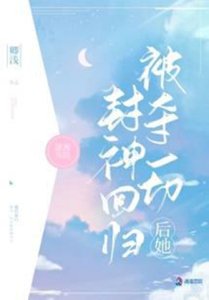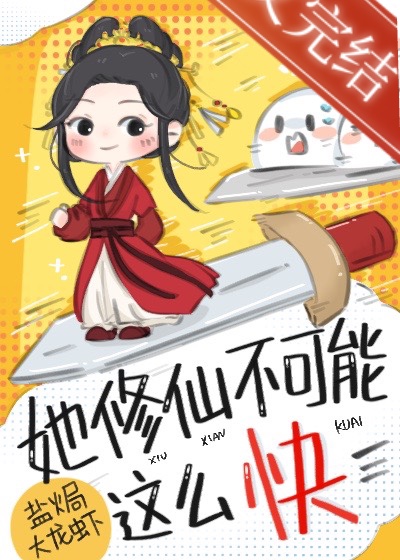ilians that Li Xiang wanted to see.
“Approved!”
Li Xiang nodded, “The matter of each Divine City opening up a region as an official field must be carried out as a national policy.
The official fields will hire civilians to farm, and the salary cannot be delayed.
The price has to be in line with the market, and they cannot be exploited.
The official granaries build in each Divine City must be filled with rations within a year and be fully prepared.”
In his vision, the official granary built in each city must be able to sustain millions of people to eat freely, and the reserves would not be exhausted even after ten years.
Under normal circumstances, that method would only cause the rations to rot.
They would be fed to the rats if they could not be eaten.
However, in the cultivation civilization, that was not impossible.
There were spatial equipment and storage magic treasures.
Not only would storing rations take up less space and be less eye-catching, but it would also last longer.
As long as there were no accidents, the rations stored in the storage equipment would be able to maintain their freshness even after hundreds or thousands of years.
Such an official granary could be used anywhere.
And its secrecy would be further ensured.
Their safety would be sufficiently ensured.
“Field taxes can be exempted, but other taxes cannot be exempted.
Without the levy of other taxes, the dynasty has no income to speak of.
Then how can the dynasty gather the wealth of the world? Building the tax revenue of the Dawn Dynasty is an indispensable part of ensuring the dignity of the dynasty.”
Huang Chengyan said seriously.
Field taxes could be exempted as it was beneficial to the civilians.
It was a benevolent policy, but other taxes could not be exempted.
Without taxes, it would be like water without a source, making things difficult to continue.
No matter how big a family’s assets were, they would still be exhausted.
If there were no taxes, how could the dignity of a dynasty be demonstrated?
Never levying field taxes was already a benevolent policy.
That was definitely not the case for other taxes.
“Of course, we have to collect the other taxes.
However, how much to collect and what types to collect required careful planning.
However, regarding taxes, I have some shallow views.”
Li Xiang said with a smile.
There were many types of taxes.
Just like the Qing Dynasty back then, when they came up with a national policy of never increasing field taxes to show their benevolence and kindness to the world.
However, they didn’t consider that the policy of never increasing field taxes was carried out based on a relatively high tax rate back then.
Moreover, it was fine to never increase field taxes, but other taxes were repeatedly increased.
All kinds of exorbitant taxes were even heavier than the exempted field taxes.
The policy of never increasing field taxes was just a piece of loincloth that the Qing Dynasty hid behind.
It was useless.
Li Xiang naturally did not want to implement the policy of never levying field taxes and had other messy taxes appear later.
That would be a slap to his face.
He could not afford to lose his face.
“We seek the King’s opinion!”
The ministers said in unison.
In ancient China, land tax was used for a long time, which included the household tax and population tax attached to the land.
It was a tax system supported by commercial tax, which included tariffs and city taxes.
That tax system was initially formed during the Western Zhou Dynasty and the Spring and Autumn Warring States Period.
During the Qin and Han Dynasty, it had gradually become complete.
During the Wei, Jin, Southern and Northern Dynasty, and Sui and Tang Dynasty, it was continuously reformed and perfected based on equal land.
In the Song, Yuan, Ming and Qing Dynasty, with the destruction of the Land Equality System, land annexation became increasingly popular.
The combined collection of land, household, and population tax was gradually realized based on continuously clearing the land and sorting out the cadastre.
The collection system of commercial tax and goods taxes for salt, tea, wine, and others was strengthened.
Thus, commercial tax and goods tax became important sources of national financial revenue in the late feudal period of China.
In fact, those tax systems were very complicated.
Some taxes were even repeatedly collected.
You'll Also Like
-

Cultivation: Start From Upgrading My Computer
Chapter 47 September 3, 2023 -

Red Envelope Group of the Three Realms
Chapter 1986 September 1, 2023 -

The Taste Of Apple Jam
Chapter 9 August 29, 2023 -

Using Gacha to Increase My Companions and to Create the Strongest Girls’ Army Corps
Chapter 84 August 28, 2023 -

Weird Live Broadcast: I Can Deduce Endlessly
Chapter 100 August 28, 2023 -

In Order To Meet You, Beloved
Chapter 35 August 28, 2023 -

The Cat Transformation
Chapter 27 August 26, 2023 -

Chemistry
Chapter 61 August 25, 2023 -

After Being Robbed of Everything, She Returns as a Goddess
Chapter 47 August 25, 2023 -

The Marquis’ Eldest Son’s Lascivious Story
Chapter 232 August 26, 2023 -

The Male Leads Were Stolen by the Extra
Chapter 13 August 24, 2023 -

The Top Efficiency Cultivator
Chapter 21 August 22, 2023
